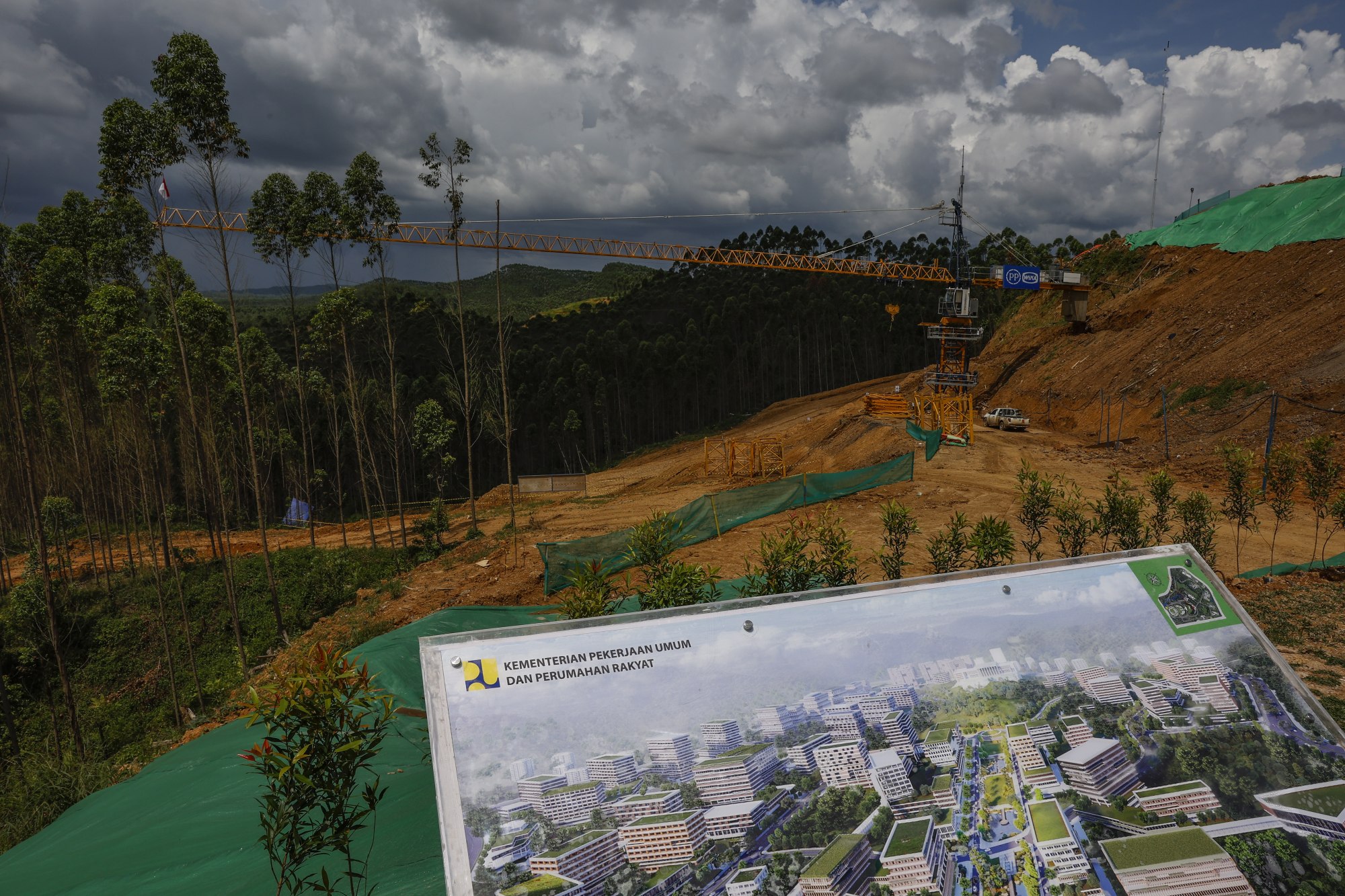
Singapore pledges support for Indonesia’s new US$34 billion capital Nusantara
- If all goes to plan, Nusantara – located in eastern Borneo – should be transformed into Indonesia ’s political centre by the end of 2024
- The two Southeast Asian nations also ratified landmark agreements made last year, covering airspace management, defence cooperation and extradition
After a pandemic-induced delay, the government has this year hastened plans to develop extensive infrastructure on the Borneo island site.

“I’m happy that both sides have now ratified all three agreements. We have discussed these issues many times over an extended period and have come a long way to get here,” said Lee.
Singapore and Indonesia last week jointly applied to the International Civil Aviation Organisation (ICAO), a United Nations (UN) body that oversees airspace management, to approve the countries’ realignment of flight boundaries.
Following the ICAO’s approval, the two states will agree on a date for the three agreements to be implemented simultaneously, said Lee.

Widodo also reflected on progress from the leaders’ last retreat. “There has been much progress that we have gained since our meeting in Bintan in January 2022. Singapore’s investment in Indonesia has increased by more than 40 per cent and our trade volume has increased by 25 per cent.”
He added that Singapore investors have shown “high interest” in the development of Indonesia’s new capital city.
In a wide-ranging interview with Singapore’s national broadsheet The Straits Times, Widodo said that Singapore is “the most important partner for Indonesia” and that bilateral ties are “very good and must continue and improve”.
“We hope investments in Nusantara can become the focus,” he said, adding that if there are plans for a roadshow, “Singapore will be the first place we will go”.
Indonesia’s capital project could help unlock Asean’s economic potential
Can an Indonesian general help Asean move Myanmar peace plan along?
Lee said that both leaders “regretted the lack of progress in Asean’s five-point consensus” and will continue working with Asean members and partners, like the UN, to push for the full implementation of the peace plan.
Indonesia will also continue to engage with all relevant parties to pave the way for ceasefire and peace in Myanmar, said Widodo.
He said that Indonesia’s priority is to ensure that Asean maintains its importance and relevance to global affairs and can operate as an “engine for peace and stability to the region”.
Indonesia’s green-energy export ban puts Asean’s power grid plans at risk
The two countries also signed an agreement on renewable energy, which will support commercial arrangements on the development of renewable energy capabilities of transmission infrastructure and cross-border electricity trading.
“It’s a win-win outcome,” said Lee, as the agreement will strengthen the energy infrastructure, energy transition and energy security for both countries and also support regional initiatives like the Asean power grid initiative.

